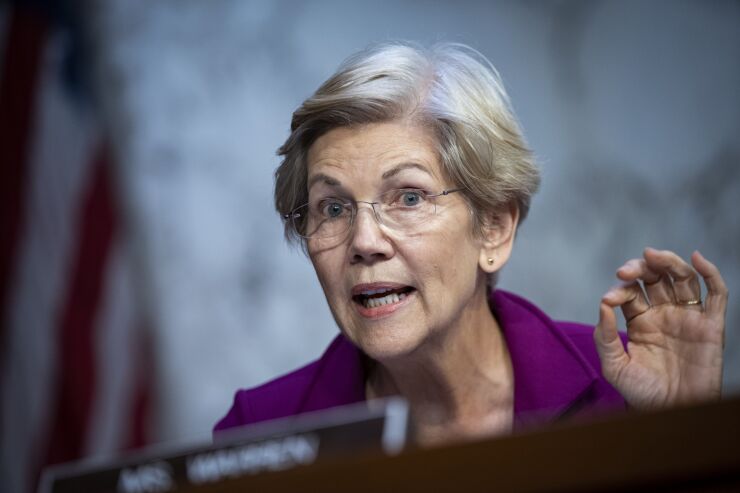In my neighborhood in Baltimore you can occasionally see the remnants of a bygone era. The sidewalks are dotted with waist-high
Technological advancements have always come with trade-offs. The automobile rendered horses — and by extension, horse hitches and boot scrapers — largely irrelevant. With cars, people can get where they're going faster, and I can only assume they have done wonders for the smell. But the trade-offs include a
This is a roundabout way of saying that solutions to problems often bring with them new and unforeseen problems — the fleas come with the dog. This is readily apparent with the proliferation of faster peer-to-peer payments platforms and the commensurate proliferation of fraud and claims of fraud on those platforms, including, but not limited to, the bank-owned payments platform Zelle.

Sen. Elizabeth Warren, D-Mass., has made something of a personal brand out of highlighting the instances of fraud on Zelle and banks'
This is a real problem that lawmakers and regulators are rightly focused on, and it should be stopped. Fraud and scams tend to target the most vulnerable and those with the least capacity to withstand such theft. It's really as simple as that — theft is bad and public officials should make it as hard to successfully accomplish as possible.
But, as I've
What is currently missing from this discussion is the lack of independently verifiable data about how much of which kinds of fraud are currently prevalent on each of these P2P platforms. Right now we have a report from Sen. Warren's office based on voluntarily reported data from some of the largest banks — a well-intentioned effort perhaps, but not the kind of rigorous apples-to-apples comparison one could expect from bank regulators or a neutral third party like the Congressional Research Office or Government Accountability Office.

From there, regulators could put in place rules of the road for minimizing the potential harm from payments scams and perhaps enhance banks' coordination with law enforcement to catch criminals. But here again there are certain limitations to what technology can accomplish. Zelle and Venmo and other P2P apps have gone a long way to minimize "fat finger" errors by requiring two-factor authentication and instituting other safeguards. And one of the advantages of having a supercomputer in your pocket is that it collects lots of data about who is accessing an account when and from where. That information can help differentiate potential fraud by a scammer against a customer from potential fraud by a customer against his or her bank.
But the feature of faster payments is also a bug — when the money's gone, more often than not it's gone. Incidentally, this is also one of the defining features of decentralized finance and blockchain technology — there's no player in the middle verifying that transactions are kosher. You just have to trust the blockchain to be final and permanent.
This matter of building consumer awareness that P2P networks are like playing with live ammo will be increasingly relevant as the Federal Reserve develops its own real-time payments network,





